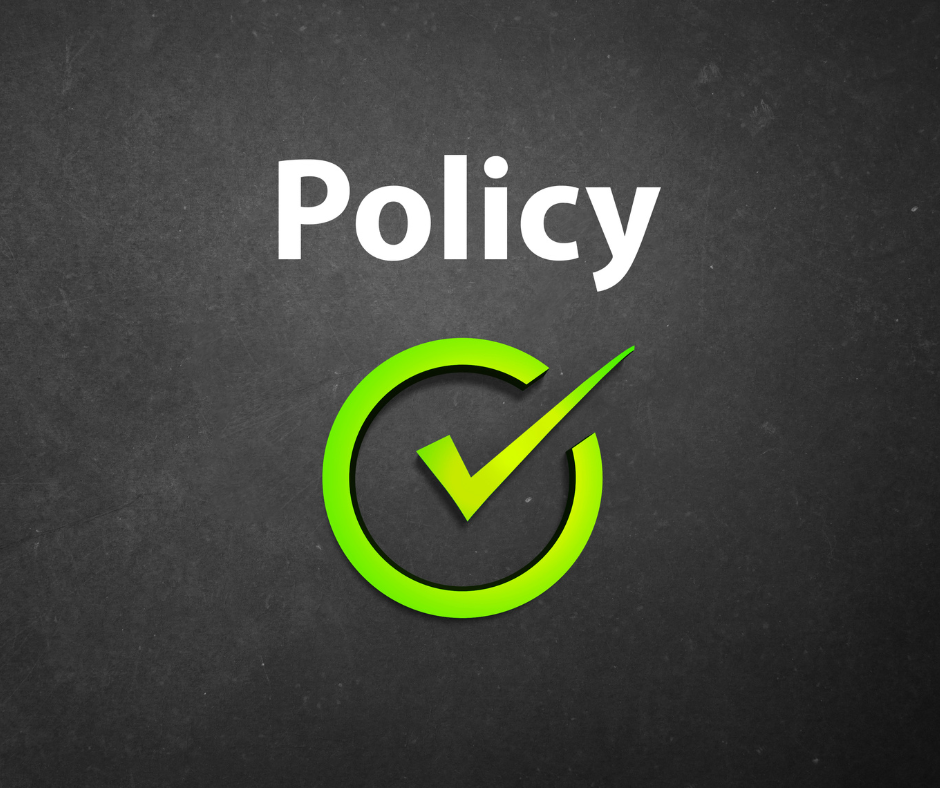
In today’s fast-paced business world, understanding a company policy is more important than ever. Well-defined policies not only protect employees and employers, but also promote a positive workplace culture that leads to increased productivity and success. This comprehensive guide will provide you with valuable insights into the purpose, importance, and essential components of a company policy, as well as tips on how to create, implement, and maintain effective policies in the workplace.
Key Takeaways
- Company policies provide guidance to employees while promoting a healthy work environment and meeting legal requirements.
- Essential components of company policies include clarity, simplicity, consistency, fairness and adherence to applicable laws.
- Regular policy review is necessary for compliance with changing laws/regulations & incorporating employee feedback into the process.
Defining Company Policy
A company policy is a set of guidelines designed to address matters such as employee accountability, health, safety, and interactions with customers. Company policies play an essential role in providing guidance in relation to legal issues, regulatory requirements, and situations that could have serious repercussions. In essence, they assist employers in safeguarding the business interests and promoting fair treatment for all employees.
Some common types of company policies include employee conduct, equal opportunity and diversity, time off and attendance, substance abuse and workplace safety, and data security and confidentiality.
Purpose of Company Policies
Company policies like an employee conduct policy primarily aim to promote employee wellbeing, ensure fair treatment, and meet legal requirements. These policies can cover a wide range of topics, from health and safety guidelines to rules regarding dress code and social media usage.
Clear expectations coupled with a culture of respect, as instilled by company policies, help discourage inappropriate behavior and foster a healthy work environment. An employee handbook is an excellent tool for organizing and documenting company policies and procedures, ensuring that all employees have access to the information they need.
Importance of Company Policies
There are several reasons why it’s vital to have well-defined company policies. Here are some of the key benefits.
- Ensuring compliance with applicable laws and regulations
- Guaranteeing uniformity in decision-making, which is vital for cultivating a productive work environment
- Helping identify potential risks and vulnerabilities, allowing organizations to take proactive measures to address them
In addition to providing a framework for employee behavior, company policies also protect the organization’s physical and intellectual property. Policies related to data security, for example, can safeguard customer data and the company’s proprietary information. By maintaining a set of comprehensive company policies, businesses can ensure the fair treatment of all employees and mitigate potential legal issues.

Essential Components of Company Policies
Certain key elements are needed for company policies to be effective. These elements include clarity and simplicity, consistency and fairness, and adherence to applicable laws and regulations. Procedures establish rules that help in maintaining these elements within the company’s policies.
We will further explore each of these components in the sections below, discussing their role in formulating and maintaining strong company policies.
Clarity and Simplicity
When drafting company policies, it’s important to use clear and concise language for easy comprehension by all employees. By using plain language and avoiding technical terms, companies can guarantee that their policies are easily understood and accessible to all personnel.
Moreover, having a unified framework for all corporate policies promotes lucidity and navigability, creating a consistent and professional representation of the organization.
Consistency and Fairness
Equal treatment of all personnel is ensured through the consistent application and enforcement of company policies. To achieve this, companies should publish their policies in a centralized system, making them readily available to all employees at any time.
Some examples of centralized systems for publishing company policies include an internal wiki, a company’s intranet, or the Scribe dashboard.
Compliance with Laws and Regulations
Company policies should strictly adhere to the relevant federal, state, and local laws and regulations. Ensuring compliance with the law not only safeguards the company from legal repercussions, but also demonstrates its commitment to ethical practices and responsible behavior.
In addition, compliance with laws and regulations helps protect employees’ rights and promotes a safe and healthy work environment.

Common Types of Company Policies
Having established the importance and essential components of company policies, we can now examine some common types of policies that help develop a company culture. Most of these policies also act as a guide to building a company culture book. These include:
- Employee behavior and conduct
- Equal opportunity and diversity
- Time off and attendance
- Substance abuse and workplace safety
- Data security and confidentiality
Each of these policy types will be explored in greater detail in the subsequent sections.
Employee Behavior and Conduct
An employee conduct policy establishes guidelines that focus on preventing bullying, outlining reporting mechanisms, and setting consequences for employees engaging in persistent bullying behavior. These policies discourage inappropriate behavior and also cover topics such as dress code, safety, and harassment prevention. By providing clear guidelines for appropriate behavior, employee conduct policies help create a harmonious and productive work environment.
In addition to promoting a positive workplace culture, employee conduct policies also protect the company from potential legal issues. Ensuring that employees adhere to established rules and guidelines reduces the risk of non-compliance with laws and regulations, which could result in fines, penalties, or damage to the company’s reputation. By consistently enforcing employee conduct policies, businesses can foster a culture of trust and integrity, which is essential for long-term success.
Equal Opportunity and Diversity
Equal opportunity and diversity policies promote fair treatment and inclusion in the workplace. These policies aim to prevent discrimination against any job applicant or employee based on factors such as:
- Age
- Color
- Gender
- National origin
- Race
- Religion
By fostering a culture of respect and acceptance, equal opportunity policies help create a more productive and harmonious work environment for all employees, regardless of their religious and cultural beliefs.
Time Off and Attendance
Time off and attendance policies outline rules and guidelines pertaining to work schedules and absences. These policies define the procedures for scheduling paid or unpaid time off, notifying managers of absences or late arrivals, and set forth the repercussions of not adhering to absence procedures.
By establishing clear expectations regarding employee attendance, companies can maintain a productive work environment and minimize disruptions caused by unplanned absences.
Substance Abuse and Workplace Safety
Substance abuse policies, which include workplace safety procedures, prohibit the use of drugs, alcohol, and tobacco products during working hours, on corporate premises, or during corporate functions. These policies are essential for maintaining a safe and healthy work environment for all employees and clients. To ensure compliance, it is crucial to outline smoking procedures employees must follow.
By preventing substance abuse and ensuring workplace safety, companies can reduce the risk of accidents, injuries, and legal issues associated with substance abuse.
Data Security and Confidentiality
Data security and confidentiality policies play a crucial role in protecting sensitive company information and intellectual property. These policies help companies safeguard customer data and proprietary information while adhering to relevant laws and regulations.
By maintaining robust data security and confidentiality policies, organizations can prevent data breaches, loss of intellectual property, and potential legal and financial repercussions.

Creating and Implementing Company Policies
Having explored the different types of company policies and their significance, we can now discuss the creation and implementation of effective policies in your organization.
The subsequent sections will offer a step-by-step guide to developing and enforcing comprehensive company policies that align with your organization’s aims and objectives.
Establishing Goals and Objectives
The first step in creating a company policy is to define its goals and objectives. This process involves assessing the current situation, understanding the organization’s goals, and determining the most effective way to address the issue at hand.
Examples of goals and objectives that can be employed when formulating company policies include:
- Ensuring adherence to applicable laws and regulations
- Promoting a secure and healthy working environment
- Fostering a culture of respect and integration
- Promoting a productive and effective workplace.
Researching and Gathering Information
Once the goals and objectives have been established, the next step is to research and gather information. This process involves company policies examples, researching pertinent laws and regulations, consulting with specialists, and obtaining feedback from stakeholders.
By undertaking thorough research, companies can acquire data and insights on industry standards, legal obligations, and employee requirements, which will help them create effective and compliant policies.
Writing and Reviewing Policies
After conducting research and gathering information, the next step is to draft the policy document. This process involves writing the policy, reviewing it for clarity and effectiveness, and making any necessary revisions.
It is essential to use clear and concise language when drafting company policies to ensure easy comprehension by all employees. Additionally, policies should be consistent and fair, adhering to all applicable laws and regulations.
Gaining Management Support and Legal Review
Before implementing the policy, it is crucial to obtain management buy-in and legal approval. Gaining management support is essential for effective implementation and adherence to the policy, as it demonstrates the organization’s commitment to the policy’s objectives.
Legal review ensures that the policy is compliant with all relevant laws and regulations, which can help minimize potential risks and legal issues.
Communicating and Implementing Policies
The final step in the policy creation process is communicating and implementing the policy. Effective communication strategies can include:
- Providing clear and concise information
- Using multiple communication channels
- Providing training and resources
- Encouraging feedback from employees
Ensuring employee adherence to policies can be achieved by establishing clear expectations, providing incentives, monitoring compliance, and implementing consequences for non-compliance.

Monitoring and Updating Company Policies
To maintain the effectiveness and relevance of company policies, continuous monitoring and updating are required. Regular policy review, adaptation to changing laws and regulations, and incorporation of employee feedback are essential components of this process.
Each of these aspects will be discussed in greater detail in the following sections.
Regular Policy Review
Periodic review of company policies is essential to ensure their continued relevance and effectiveness. Regular policy review allows companies to assess the efficiency of their policies and make necessary adjustments to ensure they are achieving the desired results.
It also helps companies identify any gaps or areas for improvement in their policies and procedures, reducing the risk of non-compliance and associated penalties.
Adapting to Changing Laws and Regulations
As laws and regulations evolve, it is essential for companies to update their policies accordingly. Adapting to changing laws and regulations ensures that the company remains compliant and avoids any legal issues that could result from non-compliance.
In addition, staying up to date with the latest requirements can provide companies with a competitive edge, allowing them to identify new opportunities and develop innovative solutions.

Incorporating Employee Feedback
Incorporating employee feedback into the policy review and update process is crucial for ensuring the continued effectiveness of company policies. By actively seeking and attentively listening to employee feedback, companies can:
- Identify any deficiencies or regions for enhancement in their policies
- Address any concerns or issues raised by employees
- Improve employee satisfaction and engagement
- Foster a culture of open communication and collaboration
This approach allows companies to make informed decisions and create policies that align with the needs and expectations of their employees.
Furthermore, involving employees in the policy review process demonstrates a commitment to transparency and inclusivity, fostering a culture of trust and open communication within the organization.
Summary
In conclusion, understanding company policies is vital for maintaining a productive and legally compliant work environment. By establishing clear goals and objectives, researching and gathering information, writing and reviewing policies, gaining management support and legal review, and communicating and implementing policies, organizations can create robust company policies that align with their strategic objectives. Regular policy review, adaptation to changing laws and regulations, and incorporation of employee feedback are essential components of maintaining effective and up-to-date company policies. By following the guidelines provided in this comprehensive guide, you can ensure that your organization’s policies remain relevant and effective, fostering a positive workplace culture and promoting long-term success.
Frequently Asked Questions
What is an example of a policy?
Public policy is a broad term which encompasses many areas, such as healthy policy, education policy and criminal justice policy. For instance, the adoption of a new statewide public school curriculum is an example of education policy.
In addition, families, agencies and organizations can all create policies to guide their operations.
What is the purpose of a company policy?
Company policies are designed to guide employees in terms of accountability, health, safety, interactions with customers, and compliance with legal regulations. They help to set expectations for behavior, actions, and processes, while reducing the risk of unwanted events and promoting uniformity in corporate operations.
What is an example of a company policy statement?
Company policy dictates that employees must be present for work every day, observe call-in procedures and obtain permission from human resources and their direct management for any absences.
Absences must be approved in advance and any unapproved absences will be subject to disciplinary action.
How do you write a company policy?
To create an effective company policy, explain the purpose, avoid jargon, use real-life examples, define the policy’s scope and communicate consequences for infringement, focus on regulatory cores, and avoid restrictions.
Additionally, ensure the language is clear, consistent, compliant, relevant, can be enforced, and states who does what.
Finally, get organized, find reliable source material, create a structure, distribute the policy for feedback and then to staff.
What are the key elements of an effective company policy?
Effective company policies should be clear, simple, consistent, fair and adhere to relevant legal requirements.